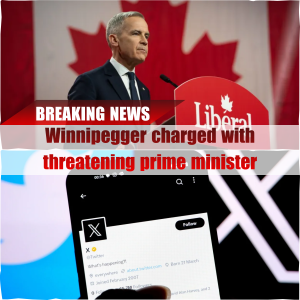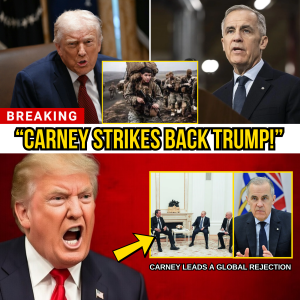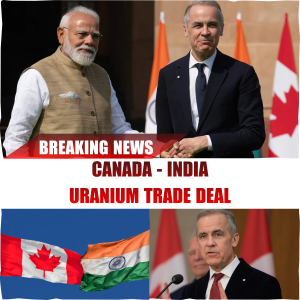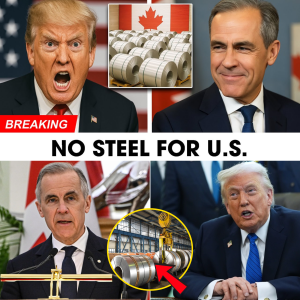Tegucigalpa, Honduras — A diplomatic storm is brewing between Honduras and the United States after Honduran President Xiomara Castro issued a stern warning that her government may shut down the U.S. military base on Honduran soil if President Donald Trump’s administration proceeds with a plan to mass deport Honduran citizens living illegally in the United States.
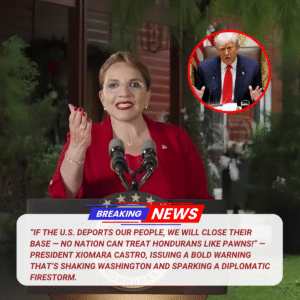
The warning marks one of the most direct confrontations between the two nations in years, potentially jeopardizing decades of military cooperation, security assistance, and counter-narcotics operations in Central America.
“If the U.S. deports our people, we will close their base — no nation can treat Hondurans like pawns,” President Castro declared during a televised national address. “A mass deportation of Hondurans would cause a humanitarian crisis and strain every resource in our country.”
Her comments, delivered in both Spanish and English, have reverberated through diplomatic circles and raised alarm in Washington, where officials are assessing how to respond to what could become a major regional flashpoint.
A Threat That Carries Weight
The U.S. military base in question is Soto Cano Air Base, also known as Palmerola, located approximately 50 miles northwest of the Honduran capital, Tegucigalpa. Established in the 1980s, the base is home to Joint Task Force-Bravo, a key U.S. command center responsible for humanitarian missions, anti-drug operations, and disaster relief throughout Central America.
For decades, it has served as a cornerstone of U.S.-Honduras relations, symbolizing cooperation in security, migration, and regional stability. A forced withdrawal of U.S. personnel would mark a historic rupture in bilateral relations and could dramatically weaken Washington’s strategic presence in the region.
“Closing Palmerola would send shockwaves through the Pentagon,” said Dr. Aaron Weiss, a Latin America analyst at Georgetown University. “It would be the first time in recent memory that a Central American nation directly challenged U.S. military operations in such a way.”
Trump’s Deportation Push: “America First Means Border First”
The controversy stems from President Trump’s renewed immigration crackdown. Earlier this month, Trump announced plans to deport over 2 million undocumented immigrants by the end of 2025, emphasizing what he called an “America First, Border First” approach.
According to leaked Department of Homeland Security (DHS) documents, Hondurans could make up a significant portion of the first wave of deportations, given the country’s longstanding migration ties to the U.S.
Trump defended the policy in a recent rally, stating:
“We can’t save every country by letting their citizens break our laws. America’s compassion starts with protecting Americans.”
But human rights groups have warned that mass deportations could destabilize fragile economies across Latin America, particularly Honduras, which already faces rising poverty, gang violence, and food insecurity.

Humanitarian and Political Fallout
President Castro argued that a sudden influx of deported citizens — estimated at over 200,000 Hondurans — would create a “humanitarian emergency”, overwhelming housing, healthcare, and employment systems.
She called on the United Nations and regional leaders to mediate between Honduras and Washington, warning that the deportation plan could “push the region toward a new migration crisis.”
In a separate statement, the Honduran Foreign Ministry confirmed that diplomatic envoys have been sent to Washington to seek “urgent clarification” of U.S. policy intentions.
Meanwhile, social media in Honduras erupted with hashtags like #NoSomosPawns (“We Are Not Pawns”) and #DefendPalmerola, reflecting national pride and defiance.
Washington’s Cautious Response
The U.S. State Department has yet to issue a formal reply to Castro’s threat but has called for “continued dialogue and cooperation.” An anonymous senior official told Reuters that Washington views Honduras as “a critical partner” and that the U.S. hopes to “avoid any escalation that undermines regional stability.”
However, within American political circles, opinions are split. Some Republican lawmakers praised Trump’s stance, saying the U.S. must “assert sovereignty” regardless of foreign threats. Democrats, on the other hand, warned that the move could “undermine decades of goodwill” in Latin America.
What’s at Stake
The standoff exposes a widening rift between U.S. immigration policy and regional diplomacy. Analysts warn that the fallout could ripple far beyond Honduras — affecting cooperation with Guatemala, El Salvador, and Nicaragua, where anti-U.S. sentiment has been growing.
“This isn’t just about deportations or one base,” said Dr. Maria Torres, a Honduran political scientist. “It’s about dignity, sovereignty, and the future of U.S. influence in Central America.”
As of now, no closure order has been issued, and talks are ongoing. But with both leaders standing firm, the coming weeks may determine whether this crisis ends in compromise — or a historic rupture between allies.
A Defining Moment in U.S.-Honduras Relations
For now, one thing is clear: Honduras has drawn a line, and Washington must decide how to respond.
Whether this moment becomes a test of diplomacy or a trigger for confrontation, it represents something rarely seen in modern geopolitics — a small nation daring to challenge the world’s most powerful one over the rights of its people.
And as President Castro concluded in her fiery address:
“We may be a small country, but our dignity is larger than any base, any border, or any threat.”
